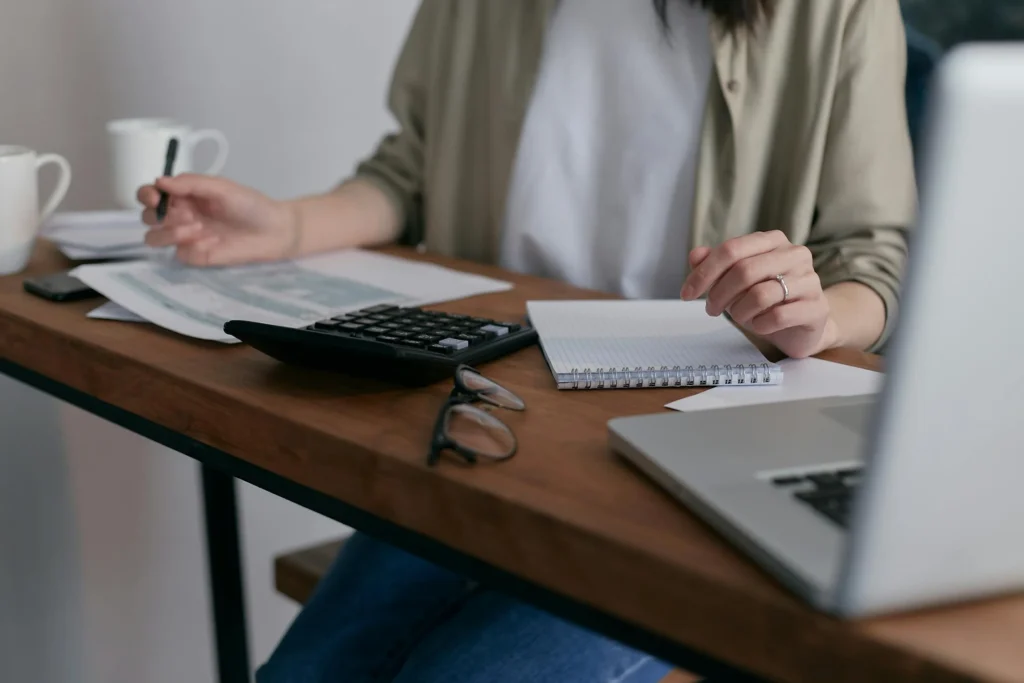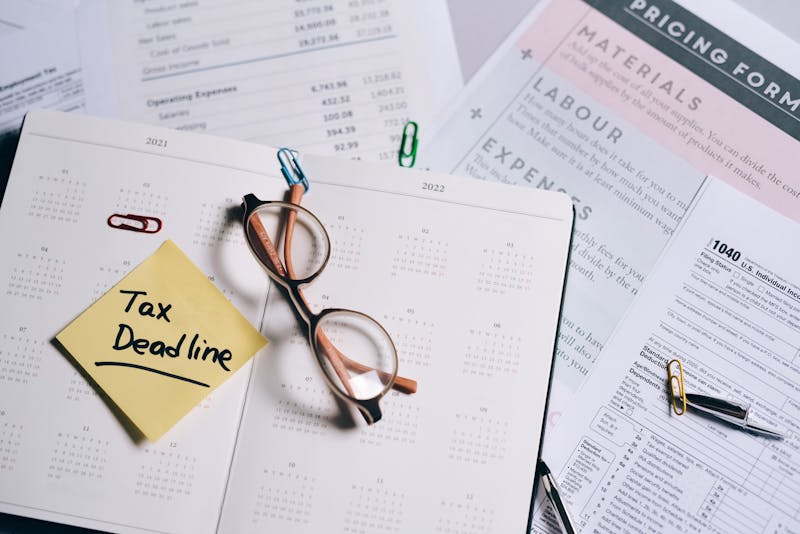Capital Gains Tax is a form of tax that you must know about if you’re a self-employed sole trader or in a business partnership. This is because a failure to declare CGT could cause you issues with HMRC. We answer all the questions you may have below, from ‘what is Capital Gains Tax’ to ‘what is the Capital Gains Tax allowance’. We also have information on Capital Gains Tax on real estate. Whether you’re an individual or own a small business, you should read on to find out more about the changes to CGT 2025
What is Capital Gains Tax?
Capital Gains Tax is the tax you pay on an asset that you sell. Whatever money you gain on the asset is what you pay tax on, not the money you receive. Property may or may not be included in Capital Gains Tax – we have more on this below.
Note that limited companies pay corporation tax on assets, not Capital Gains Tax. We have guides on this for you to check out.
What is the Capital Gains Tax allowance?
Like with income tax, there is a threshold allowance for Capital Gains Tax. This is £3000 or £1500 for trusts.
What do you pay Capital Gains Tax on?

As an individual, you may need to pay CGT on the following personal assets:
- Land
- Investment properties
- Second homes
- Shares
- Stocks
- Crypto
Do I pay Capital Gains Tax on property?
You might need to pay Capital Gains Tax on profits that you make from selling a property. This will usually be on a second property, a buy-to-let property, or an inherited home. However, certain costs, like stamp duty, can be deducted. We have more on this below.
What is the 60-day rule for Capital Gains Tax on real estate?
For any individual, trustees or joint owners of a property disposal, CGT must be reported and paid within 60 days of the gift or sale for any UK residential property. This rule was introduced on 27st October 2021.
For example, if you sell your rental flat on 1 May 2025, you will owe HMRC by 30 June 2025. This also includes non-residents – even if no tax is due.
Note that penalties will occur if the 60-day deadline is not met. The penalties start at £100 and will increase if the return is 6 months late.
What are the CGT rates for real estate?
CGT rates have changed. We’ve listed the CGT rates you will owe from 6 April 2025 onwards below.
For those in the higher tax band, you’ll pay:
- 24% on residential property
- 32% on carried interest if you manage an investment fund
- 24% on other chargeable assets
For those in the lower tax band, you’ll pay:
- 18% on residential property
- 32% on carried interest if you manage an investment fund
- 18% on other chargeable assets
How can Accountancy Solutions help with the 60-day rule for property?
Our team of experts is here to help guide you through the process. Contact us here for a quote.
Will I pay Capital Gains Tax on my main home?
If you own more than one property, you can nominate which one will be tax-free for CGT. It doesn’t have to be the one you live in.
For the time the property was your main home, you won’t need to pay Capital Gains Tax. Plus, the 9 months you’ve owned the property. For those with disabilities or who have moved into a care home, this extends to 36 months.
This is unless you make changes to your property or move out.


Changes to a home that could be taxable for CGT
Certain changes to your home could qualify for CGT once you sell the property because they increase the value.
- Use part of your home for business
- Purchased a home to renovate and sell
- Moved out of the property 9 months ago or more
- Sell or let a part of your home
- Home developments – i.e., converting part of your home into flats
- Selling more than 1.2 acres of your garden
Do I pay Capital Gains Tax on inherited properties?
You won’t pay CGT when your family member passes away as the value of the home will be included in their estate.
If you choose not to move into the home and instead sell it, you might have to pay CGT if there is a profit after the sale – i.e., if the value of the property has increased between the date you were given the property and the date you sell it. Then, the amount you then pay on the taxable gain depends on how much you earn.
How much Capital Gains Tax do I pay?
Once you’ve worked out the gain for each asset and added them together, take away any losses. You’ll then be able to check if you need to pay Capital Gains Tax, and if so, how much. See below for a step-by-step guide.
How do you work out Capital Gains Tax?
You’ll need to work out your gain to see if you need to pay CGT. This is essentially what you paid for vs what you sold it for. To do this, you’ll need to:
1. Deduct the cost of selling
This includes the costs to sell it, like advertising, broker fees, Stamp Duty Land Tax and VAT (but not if the VAT can be reclaimed.) However, you cannot deduct some costs that you claim as a business expense.
2. Consider Tax relief
If your business is eligible for tax relief, you could reduce your Capital Gains Tax.
3. Calculate what you need to pay
When you’ve worked out your gain, you’ll need to check if you need to pay Capital Gains Tax. You might need to work out the share of your gain (or loss) if you’re in a business partnership.
Do I need to pay Capital Gains Tax?
Not everyone will need to pay Capital Gains Tax.
If your total amount of gains is less than the CGT allowance (£3,000 in 2025/26), you won’t have to pay it. However, you will have to report your gains in your tax return if the total asset amount was more than £50,000 and/or if you’re registered for self assessment.
For example, if you sell a home for £50,000 profit and account for the £3,000 allowance, you will owe tax on £47,000 at the higher or lower rate, dependent on your income.
What if I make a loss when I calculate my Capital Gains Tax?
You can report your loss to HMRC as this might reduce the Capital Gains Tax (also known as an ‘allowable loss’). The loss is taken away from your total gains for the tax year.
If you’re registered for self-assessment, you can claim your loss on your tax return.
What do you pay Capital Gains Tax on for small businesses?
You may need to pay CGT on the following business assets:
- Machinery
- Land or buildings
- Registered trademarks
- Any shares
- Fixtures
- Your business’s reputation
- Or, selling your business
Selling a business: Capital Gains Tax explained
If you sell a business and you get either money from the sale or money from the assets that you keep, you could pay capital gain tax.
How do I minimise my CGT bill?
There are a few business strategies that can help to minimise your CGT bill. This could be transferring or timing the holding of your assets.
Let us do the thinking for you! Our expert accountants are here to create a plan for the best tax strategies for you. Contact us to find out more.
We hope this guide on Capital Gains Tax for small businesses and individuals was helpful! If you need more guidance on Capital Gains Tax, our helpful team of accountants is here to help. Contact Accountancy Solutions to speak to one of our experts.
Next, check out our guide on balance sheets to find out more about essential accountancy for small businesses.
